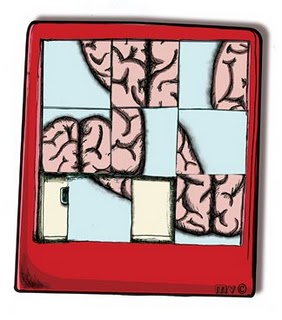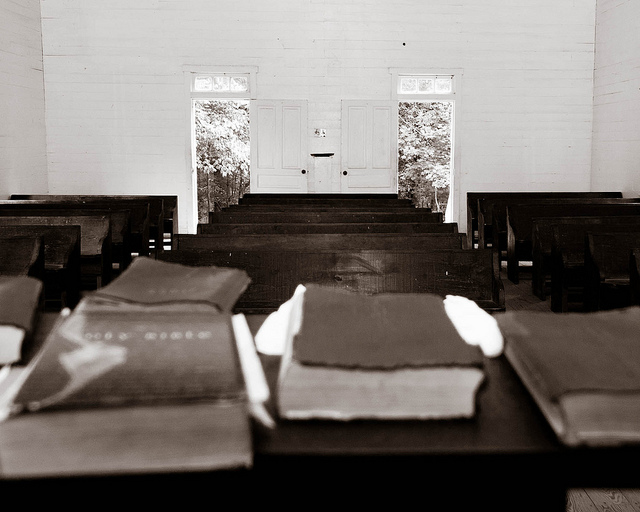Misfits

I recently learned that somebody referred to the people with whom I have worshiped for over nineteen years as “the misfit church.” Not only am I a member of this church, but I served for sixteen years as a minister and have, for sixteen years served as one of the elders. (Many of those years overlapped.)
As you might imagine, the description I heard caught my attention. I’m only guessing (but I’ve got a pretty good idea that I may be guessing correctly) that calling a group of people “misfits” was not meant as a high compliment.
It could be that we “earned” that label in somebody’s mind because of what we choose to call diversity. If you were to walk into one of our assemblies, you would not see a group of people who look or act like clones of one another. What you would experience would be totally different from that.
As you would get to know us, you would find that there would be landlords and people who live in public housing in the same assembly. You would learn that we have current and former law enforcement officers along with people who have been incarcerated in the past. You would find different races and even different nationalities. You would find people with advanced educational degrees and adults who never completed a secondary school education. We even have Kentucky, Louisville, and Duke basketball fans as well as Alabama and Tennessee football fans sitting under one roof as we worship together!
In these and many other categories I can think of, there would be people who could be seen by others as “misfits.” We don’t see each other that way, though. We see each other as brothers and sisters.
While I do not know the intentions (or even the identity) of the person who identified us as misfits, I did think of some others who probably were looked upon that way. Please allow me to remind you about some of them.
I’m thinking, for example, of what many in the “high society” of their day probably saw as nothing more than a ragtag menagerie of slaves setting out on an ill-conceived and pointless journey. We see them differently. We see them as God’s people leaving Egypt and starting their journey to the land of promise.
I’m also thinking of another group of “misfits.” Instead of selecting men of renown from religious, economic, and/or political circles, our Lord chose some lowly fishermen, a despised tax collector, a threat to the government, and others as His apostles.
I’m also thinking about the fact that, while He was on earth, my Lord seems to have spent more time with – and have had more compassion for – the “misfits” of society than with the more acceptable people (in the eyes of the world). He did this in spite of the fact that He was criticized severely for doing so.
What about some of those early Christians? What if, instead of walking into one of our worship services today, you could turn the clock back and worship with the church at Corinth? Would you have seen a group of formerly very observant Jews who had been converted to Christ? Would all of the people in that church have been known for their morality prior to their conversion? In short, were all of the Christians in Corinth good, upstanding people who had decided to embrace the teachings of Jesus?
That absolutely would not have been the case. Please consider the following description of the kind of people some of the members of that church were prior to their being “…washed…sanctified…[and] justified…” (1 Cor. 6:11). The Holy Spirit inspired Paul to describe them as formerly being:
- sexually immoral
- idolaters
- adulterers
- men who practice homosexuality
- thieves
- greedy
- drunkards
- revilers
- swindlers
If that isn’t a list of misfits, I’m not sure what such a list would look like!
In spite of that, the book of First Corinthians is not addressed to the misfit church. Instead, the Holy Spirit describes them as “…the church of God which is at Corinth…sanctified in Christ Jesus, called to be saints together with all those who in every place call upon the name of our Lord Jesus Christ, both their Lord and ours” (1 Cor. 1:2).
A question comes to my mind. Would “those who in every place call upon the name of our Lord Jesus Christ” have looked at the church at Corinth as a misfit church?
What about the church at Colossae? Would they look with disdain on the church at Corinth? I doubt that such would be the case.
After all, if you visited a worship service in Colossae, there would be a very good chance that you would worship with a former slave and the owner from whom he had run away at one time in the same service. Wouldn’t it also be the case that, if Paul’s inspired instructions were followed, they would regard one another as brothers? (Philemon 1:6) The beginning of the letter to this church is also interesting. It is addressed to “…the saints and faithful brothers in Christ at Colossae” (Col. 1:2), not a misfit church.
I guess the bottom line of what I am thinking is threefold. First, if the church of which I’m a member is seen as a misfit church, we are in pretty good company.
Second, I’m probably the biggest misfit of the bunch. In fact, I may be the reason that others see us that way.
Third, whenever I join with those who look down their noses at others as misfits, I am acting like the “religious bigshots” who were the antagonists of Jesus while He was on the earth. I’m certainly not acting like the One whose name I wear. After all, He was the One who said,
“Come to me, all who labor and are heavy laden, and I will give you rest.” (Matt. 11:28, ESV, emphasis added)
I am very thankful that I am a member of a church that believes and practices the following:
For as many of you as were baptized into Christ have put on Christ. There is neither Jew nor Greek, there is neither slave nor free, there is no male and female, for you are all one in Christ Jesus. And if you are Christ’s, then you are Abraham’s offspring, heirs according to promise. (Gal. 3:27-29)
To Receive Every Article from A Legacy of Faith through Email for Free, Click Here
AUTHOR: Jim Faughn


